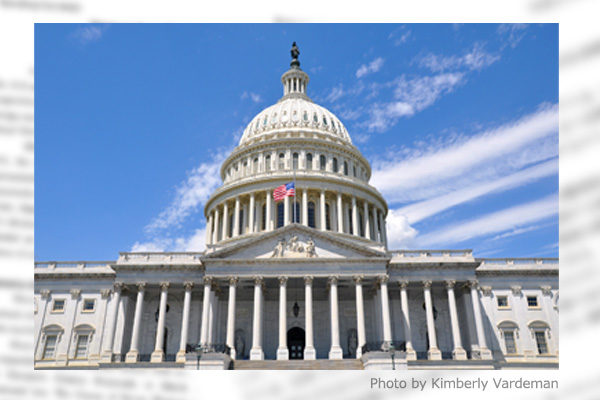There is a claim that Japan is the only G7 (Group of Seven) member lacking a legal ban on discrimination against LGBT (lesbian, gay, bisexual and transgender) people. This claim is contrary to fact.
In the United States, Democrat-proposed Equality Act to prohibit discrimination on the basis of sex, gender identity and sexual orientation has come under opposition from almost all Republican lawmakers and is unlikely to be enacted. A main reason for objection is that the vague definition of discrimination is at risk of inducing lawsuit abuse and reverse discrimination. Particularly, opponents claim that the bill puts transgender people’s rights above women’s rights in a manner to undermine the protection of women and that the bill threatens the freedom of religion.
Republicans currently control the House. The Senate, where Democrats have a thin majority, has the filibuster rule that requires a three-fifth majority to put a bill to a vote. Therefore, we can say the bill has no chance of passing the Congress in the foreseeable future.
U.S. law admits rights to reject same-sex marriages
As for judicial judgments, the U.S. Supreme Court ruled in 2020 that dismissals and employment rejections due to LGBT reasons go against the equality of employment opportunities provided in the 1964 Civil Rights Act. The ruling, however. bans LGBT discrimination only where employment opportunities are concerned. The top court has never ruled overall discrimination based on gender identity or sexual orientation as unconstitutional or illegal.
Among U.S. conservatives in particular, it is clearly recognized that an unlimited ban on LGBT discrimination would produce negative impacts by inducing antisocial forces’ blackmails or lawsuit abuse against companies, organizations and individuals and running counter to the protection of women.
As far as same-sex marriages are concerned, the Supreme Court made a five-to-four decision in 2015 requiring all states to tolerate them. At the initiatives of liberals who were concerned that the top court might reconsider or reverse the decision (i.e., come back to the past position of leaving states to decide), the Respect for Marriage Act to certify the legitimacy of same-sex marriages was enacted with support from some Republicans as well as Democrats in December 2022.
It must be noted here, however, that the act does not require all people to tolerate same-sex marriages but clearly provide for protecting people who have negative view about same-sex marriages. “Diverse beliefs about the role of gender in marriage are held by reasonable and sincere people based on decent and honorable religious or philosophical premises,” the act says. “Therefore, Congress affirms that such people and their diverse beliefs are due proper respect.”
The act also includes limits or safeguards on the prohibition of discrimination against same-sex marriages, stipulating that any religious organizations shall not be forced to provide solemnization or celebration of marriage or be subjected to litigations or adverse disposition (such as the cancellation of tax exemption) due to their rejection. The important point is that the act not only endorses same-sex marriages but also endorses the position against same-sex marriages.
Japan should study foreign cases
As a LGBT-developed country, the United States has seen the emergence of various relevant problems early on. U.S. debate on the matter has thus deepened.
At the Japanese National Diet, some lawmakers are trying to pass a bill against vaguely defined LGBT discrimination hurriedly without discussing any safeguards. They should pause to study U.S. and other foreign cases.
Yoichi Shimada is a senior fellow and Planning Committee member, Japan Institute for National Fundamentals, and a professor at Fukui Prefectural University.


